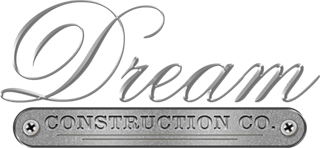
Choosing the right contractor for your concrete project is an important decision that impacts the durability, safety, and aesthetic appeal of the final result. Whether you’re planning to install a new driveway, lay a foundation, or enhance your outdoor space with decorative concrete, hiring a contractor with the right skills and experience ensures a smooth process.
1. Define Your Project Needs
Before hiring a contractor, you need a clear understanding of your project requirements. Defining these aspects will help you communicate effectively with potential contractors and get more accurate estimates.
- Project Type: Are you working on a residential paving service, a commercial building, or a decorative installation?
- Scope of Work: Do you need installation for driveways and slabs, foundations, or sidewalks?
- Budget & Timeline: Set realistic expectations for cost and completion time.
- Site Conditions: Assess the area where the work will be done, as factors like soil type, slope, and drainage can impact the concrete installation.
2. Research & Shortlist Potential Contractors
Choosing the right contractor requires careful research to ensure you’re working with a skilled and reputable professional. Start by searching online for reviews and ratings on platforms like Google, Yelp, and the Better Business Bureau. These sources can provide valuable insight into customer experiences and the contractor’s reliability.
Additionally, ask for recommendations from friends, family, or other professionals in the construction industry who have firsthand experience with concrete work. Local expertise is also important, so look for concrete contractors with a proven track record in projects similar to yours.
A reputable general contractor for cement work should have extensive experience and a portfolio that demonstrates quality craftsmanship. By taking the time to research and vet potential candidates, you increase the likelihood of hiring a contractor who can deliver a durable and well-executed project.
3. Verify Credentials & Experience
Once you have a shortlist of potential contractors, the next step is verifying their credentials and experience. Ensure they hold the necessary licenses and insurance, as this protects you from liability in case of accidents or unforeseen issues during the project.
Additionally, ask how long they have been in business and what types of projects they specialize in. A professional concrete contractor should have experience handling a range of projects, from residential paving services to large-scale commercial construction. They should also be familiar with best practices in concrete materials procurement and installation.
4. Ask The Right Questions
When evaluating potential contractors, asking the right questions can help you determine their expertise, reliability, and ability to manage your project efficiently. A reputable concrete contractor should be able to explain their approach in detail and provide clear, confident answers.
- What type of cement mix do you use, and how do you ensure durability? (Understanding material quality is crucial for long-lasting results.)
- How do you prepare for site conditions that may affect the installation? (Proper preparation can prevent issues like cracking and shifting.)
- What’s your process for concrete materials procurement? (Reliable sourcing ensures high-quality materials and minimizes project delays.)
- Do you offer warranties or guarantees on your work? (A trustworthy contractor should stand behind their craftsmanship.)
- How do you handle unforeseen challenges or weather delays? (Flexibility and problem-solving skills are essential for staying on schedule.)
5. Review The Contract Carefully
Before signing an agreement with a contractor, take the time to review the contract thoroughly to ensure that all essential details are clearly outlined. A well-structured contract protects both you and the contractor by setting clear expectations and minimizing the risk of disputes.
Detailed Project Description & Scope Of Work
The contract should specify exactly what work will be done, including the type of concrete, finishes, reinforcement, and any additional services like site preparation or sealing.
Payment Schedule & Total Cost Breakdown
Ensure the contract provides a transparent breakdown of costs for labor, materials, and any potential additional fees. A fair payment structure often includes an initial deposit, progress payments, and a final payment upon completion.
Timeline & Estimated Completion Date
A clear project schedule helps keep everything on track and ensures accountability. The contract should outline expected start and completion dates, along with provisions for handling delays.
Warranty details & dispute resolution terms
A reputable contractor should offer a warranty on their workmanship, specifying what is covered and for how long. Additionally, the contract should outline a process for resolving disputes should any issues arise.
Taking The Next Step With Dream Construction
Selecting the right concrete contractor is a significant decision that impacts the overall outcome of your project. With the right choice, you ensure quality, efficiency, and satisfaction. If you’re ready to embark on your project in Las Vegas, consider reaching out to Dream Construction for expert guidance and services tailored to your needs. Make your next project a success by choosing a partner who values excellence.
